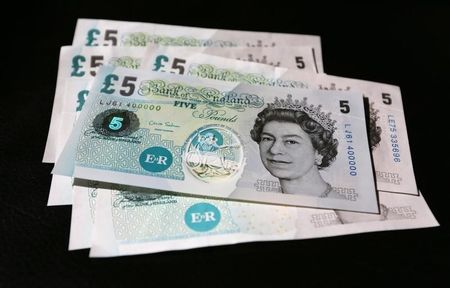By Jamie McGeever and Huw Jones
LONDON (Reuters) - Britain plans to extend laws criminalising the rigging of Libor interest rates to seven other financial benchmarks by the end of this year, the finance ministry said on Thursday.
The Treasury launched a consultation on widening the legislation to a range of benchmarks including the WM/Reuters 4pm London fix - the dominant global benchmark in the $5.3 trillion (3.2 billion pounds)-a-day currency market - and gold, oil and silver.
The consultation will run until October 23.
U.S. and European regulators have already handed down billions of dollars in fines to banks for rigging London Interbank Offered Rates (Libor) - the global interest rate benchmark - and are probing claims traders colluded and shared client order information to manipulate key currency rates.
"The integrity of the City (of London) matters to the economy of Britain. Ensuring that the key rates that underpin financial markets are robust, and that anyone who seeks to manipulate them is subject to the full force of the law is vital," said Andrea Leadsom, economic secretary to the Treasury, in a statement.
A broader review of UK markets, being led by officials including Bank of England Deputy Governor Minouche Shafik and Financial Conduct Authority chief executive Martin Wheatley, could recommend further changes to benchmarks next June.
The European Union has criminalised the rigging of financial market benchmarks after the Libor scandal. But these laws will not take effect until 2016, while Britain has already introduced criminal sanctions.
Thursday's announcement sets out other benchmarks along with FX that will be brought under the new UK law, after a pledge earlier this year by Chancellor George Osborne to make currency rigging a criminal offence.
Many of these benchmark-setting processes are already being overhauled. The 117-year old method of setting the silver fix ended in August, and at least 15 companies have expressed interest in replacing the century-old London gold benchmark.
A major focus for regulators and market participants is foreign exchange, notably the 60-second window around 4 o'clock London time where benchmark rates in the $5.3 trillion-a-day market are set.
Banking sources told Reuters this week that regulators plan to widen that window to five minutes.

Experts argue that the longer the period over which currency trades are aggregated, the less chance there is for a handful of traders to influence the final fixing price.
(Reporting by Jamie McGeever, Huw Jones and Andy Bruce, editing by John Stonestreet)
